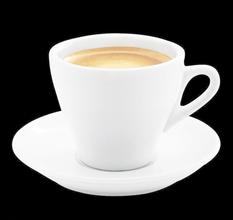Starbucks "helps" Nestle Coffee, another giant increases the size of the Chinese market
Starbucks, the "predator" of coffee grinding, has intersected with Nestle, the "ancestor" of instant coffee.
Starbucks announced plans to sell espresso for Nestl é home capsule coffee machines in Europe, Reuters reported.
This marks that Starbucks products will also be made by Nestl é capsule coffee machines.
Almost at the same time on the 23rd, Nestle Coffee Center was officially completed in Pu'er, Yunnan Province. Its CEO Paul. Bok Kai said that China will become the largest market for Nestle coffee.
It seems that Nestl é, an aging "enlightening teacher of Chinese coffee", will usher in new development opportunities.
[1]
Starbucks "helps", Nestl é increases its Chinese coffee business
On March 23, local time, Starbucks announced plans to sell espresso "suitable for Nestle home capsule coffee machines" in Europe.
This means that Starbucks products can also be made by Nestl é capsule coffee machines.
Almost at the same time, the Nestle Group's first modern Nestle Coffee Center project was officially completed in Yunnan, which was "fighting" with Starbucks that year.
Nestl é said the coffee center is to train local farmers to grow coffee better in order to improve the quality of local coffee, which will also reserve more coffee raw materials for Nestl é.
"any investment has a purpose, and it does cost a lot of money."
Bok Kai, CEO of Nestl é, said: "the purpose of our investment is to be based on the long term, based on the long term of China, Yunnan and the region, as well as the long-term service for the coffee category."
To meet the global demand for coffee, 25 million farmers in more than 80 countries are engaged in coffee cultivation.
At present, China is playing an increasingly important role in the coffee production chain.
In fact, as early as 1998, Nestl é began to purchase coffee beans for its products in Yunnan. In 2002, Starbucks came here a few years ago. The two keep fighting in secret, seizing the "upstream coffee base" of Yunnan, and at the same time making the team of coffee bean buyers here more and more large.
Nestl é plans the entire coffee supply chain and value chain. Quality control from the source, for large international enterprises like Nestl é, can greatly reduce the risk in the supply chain.
At the same time, the establishment of a modern coffee center will not only "save trouble" for Nestl é in the long run, but also improve product quality and reputation.
[2]
Wa, Starbucks, Unification, Coca-Cola. The competition for ready-to-drink coffee is white-hot.
In the 1980s, the classic slogan "Nestle, delicious" spread all over the streets, and the Chinese coffee journey began.
However, Nestle's performance has declined for six consecutive years! 2015 recorded the lowest growth rate.
In the face of good market prospects, the beverage giants also frequently attack to seize the market.
In March last year, Starbucks formally signed a cooperation agreement with Master Kang, which is responsible for the production and sale of Chinese mainland ready-to-drink beverages.
At the same time, Coca-Cola launched Joya Coffee in a high profile.
Yibao "Marriage" Japanese Kirin Fire Cafe
Uni-President also launched a new ready-to-drink coffee strategy, the "Yaha hey" series and the high-end "Rondo Coffee".
Wa also launched Maoyuan Coffee at the beginning of this year.
……
In the field of instant solution, brands such as Maxwell are a headache for Nestl é.
Chinese consumers are pursuing more advanced, more tastes and more choices. Competition in the ready-to-drink coffee market is becoming increasingly fierce.
[3]
The old brand "rejuvenation", reconstructing consumption cognition
Today, the domestic consumption structure and market environment have undergone fundamental changes, personalized consumption, fine service has become a trend.
The era of "choosing Procter & Gamble, Food Buy Kraft and Nestle", which was previously regarded as fashionable and popular, has gone, and consumers have more choices.
Nestl é is clearly adjusting all categories, including coffee.
Just last year, Nestle Coffee launched a sugar-free 1: 2 coffee in China, which is concerned about Chinese consumers who like to drink coffee without sugar or hope that there is no sugar in the product.
At the same time, Nestle Coffee has made strategic adjustments, laying out the capsule coffee business and infiltrating into the high-end market as well as the second and third-tier markets.
The elegant decoration of the Nespresso store on the fifth floor of Beijing Xingguang Tiantian makes drinking coffee seem to be an artistic enjoyment. This is the first high-end experience store opened by Nestle in China. The name of the store is a combination of Nestle and Espresso.

Important Notice :
前街咖啡 FrontStreet Coffee has moved to new addredd:
FrontStreet Coffee Address: 315,Donghua East Road,GuangZhou
Tel:020 38364473
- Prev

The winner of the Pacific Coffee 2016 barista contest
With the mellow coffee flavor of Didi, the Pacific Coffee barista Competition kicked off in Vientiane City, Shenzhen. 22 contestants who stood out from the qualifying competition of nearly 500 Pacific Coffee stores around the world took part in the competition. In the three-day schedule, after a fierce competition round by round, Huang Guanfeng from Pacific Coffee South China won the championship of this competition.
- Next

Nestl é makes coffee capsules for Yunnan coffee for the global market.
At present, Yunnan has become the largest coffee producing area in China, with a coffee planting area of nearly 1.8 million mu and an output of 130000 tons. Yunnan limited edition espresso is a pure Arabica coffee, the packaging design comes from Chinese ink painting, and the limited edition logo design uses Chinese traditional seal culture, which complements the theme of Chinese coffee. Director of Nestle Pu'er Purchasing Station
Related
- Can lightly roasted coffee beans be used to extract espresso? How finely should you grind high-quality coffee beans to make Italian latte?
- What is the difference between the world's top rose summer coffee and Yejia Shefi? What are the flavor characteristics of Yega Shefi coffee and Panama rose summer?
- The ceremony is full! Starbucks starts to cut the ribbon at a complimentary coffee station?!
- A whole Michelin meal?! Lucky launches the new "Small Butter Apple Crispy Latte"
- Three tips for adjusting espresso on rainy days! Quickly find the right water temperature, powder, and grinding ratio for espresso!
- How much hot water does it take to brew hanging ear coffee? How does it taste best? Can hot water from the water dispenser be used to make ear drip coffee?
- What grade does Jamaica Blue Mountain No. 1 coffee belong to and how to drink it better? What is the highest grade of Blue Mountain coffee for coffee aristocrats?
- What are the flavor characteristics of the world-famous coffee Blue Mountain No. 1 Golden Mantelin? What are the characteristics of deep-roasted bitter coffee?
- Can I make coffee a second time in an Italian hand-brewed mocha pot? Why can't coffee be brewed several times like tea leaves?
- Hand-brewed coffee flows with a knife and a tornado. How to brew it? What is the proportion of grinding water and water temperature divided into?

